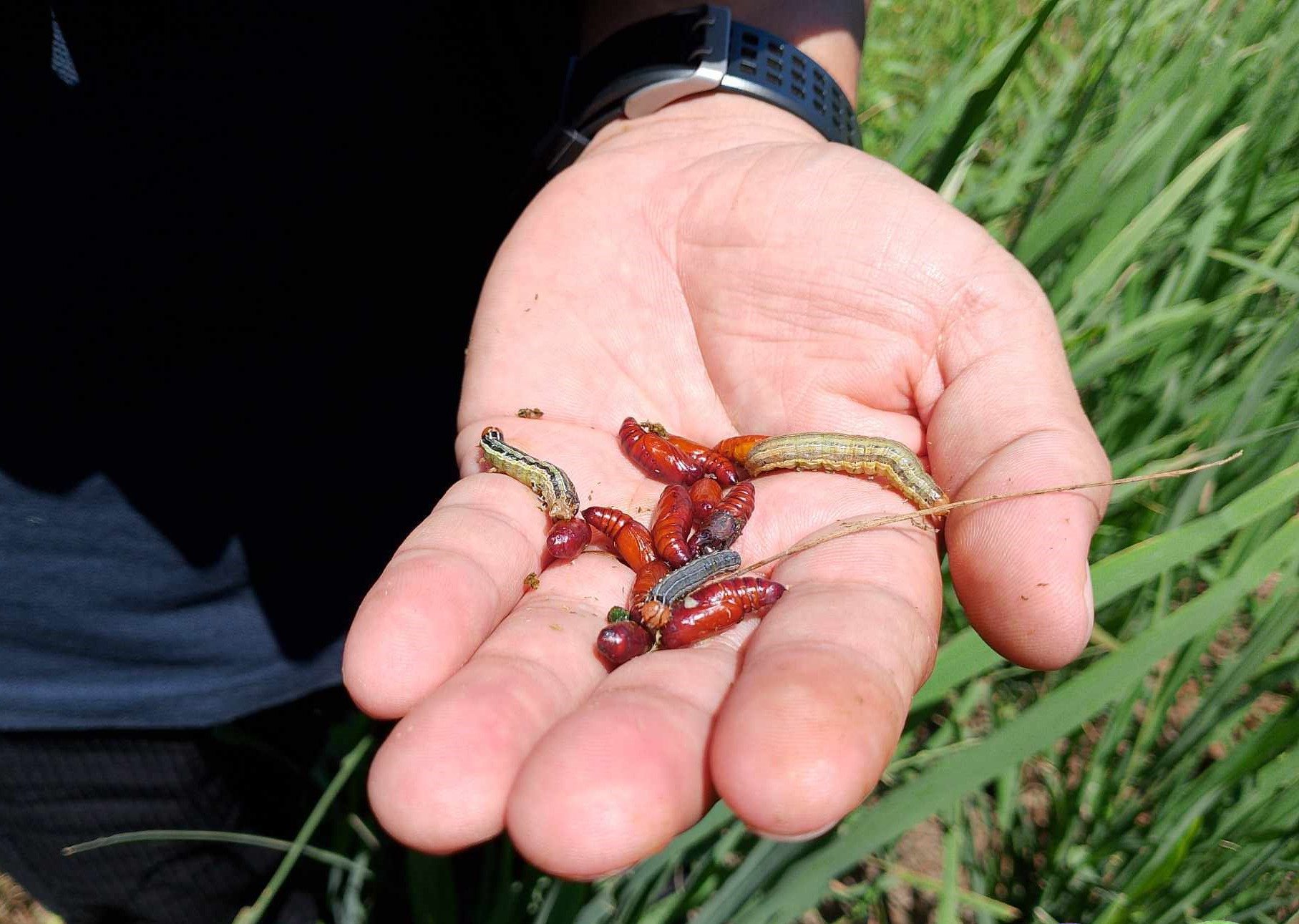SUMMARY
This is AI generated summarization, which may have errors. For context, always refer to the full article.

ZAMBOANGA DEL NORTE, Philippines – The Provincial Agriculturist’s Office of Zamboanga del Norte has expressed alarm as it embarked on a province-wide mobilization to mitigate the damage caused by armyworms, which have infested the province’s rice fields for a week now.
Provincial Agriculturist Maybel Bustalino told Rappler on Tuesday, February 20, that the armyworms have already damaged at least 445 hectares of the province’s more than 16,000 hectares of rice fields in at least seven municipalities and Dapitan City.
The municipalities include Roxas, Pinan, Katipunan, Rizal, Sindangan, Liloy, and Siocon. The province comprises 25 municipalities and two cities.

Although the infested areas represent only about 2% of the province’s total rice fields, Bustalino said the damage has already reached P15.5 million in the last seven days.
They received pesticides from the Department of Agriculture’s Regional Office in Pagadian City, and have already been distributing them to farmers in infested areas since Friday, February 16.
“Our reaction has to be immediate because these armyworms can consume a whole hectare of rice plantation in two days if left unattended,” Bustalino said.
She also told her agriculturists in the field to instruct farmers to conduct “blanket spraying” of insecticides not just “spot spraying,” and to closely monitor their rice plantations because the armyworms are sneaky, “they can hide on other crops nearby and return to the rice plantations.”
“The spraying should be done late in the afternoon because armyworms are nocturnal; they feed at night,” Bustalino said.
She said they are now waiting for reports from the affected areas to know if the armyworm attack has been effectively controlled.

The last devastating attack of armyworms in Zamboanga del Norte was in the late 1980s, damaging the province’s corn plantations.
Bustalino said, “Armyworms are always there during the prolonged dry season, but it is now that they have gone up to alarming infestation level.”
Zamboanga del Norte, an agricultural province, was among the 10 poorest provinces in the country from 1998 up to 2021, based on data from the Philippine Statistics Authority (PSA).
In 2012, the province slightly went up to the 5th poorest with 50.3% poverty incidence or more than half of its one million population being poor.
Today, the province’s rice production is barely enough for its consumption, which compels the province to regularly buy rice from neighboring provinces of Zamboanga del Sur and Zamboanga Sibugay. – Rappler.com
Add a comment
How does this make you feel?










There are no comments yet. Add your comment to start the conversation.